Meesho's WhatsApp Revolution: How Social Commerce Conquered Bharat Without Paid Ads
- Nayan Tomar
- Jul 15, 2025
- 5 min read

Reading Time: 5 minutes
Zero marketing budget to ₹7,615 crore GMV - Meesho cracked the code to reach Bharat without spending on ads, proving that social commerce can reduce customer acquisition costs by 60% when leveraging existing social networks, transforming 13 million women into micro-entrepreneurs through WhatsApp-first commerce strategy.
The Anti-Marketing Marketing Strategy: When Trust Beats Advertising
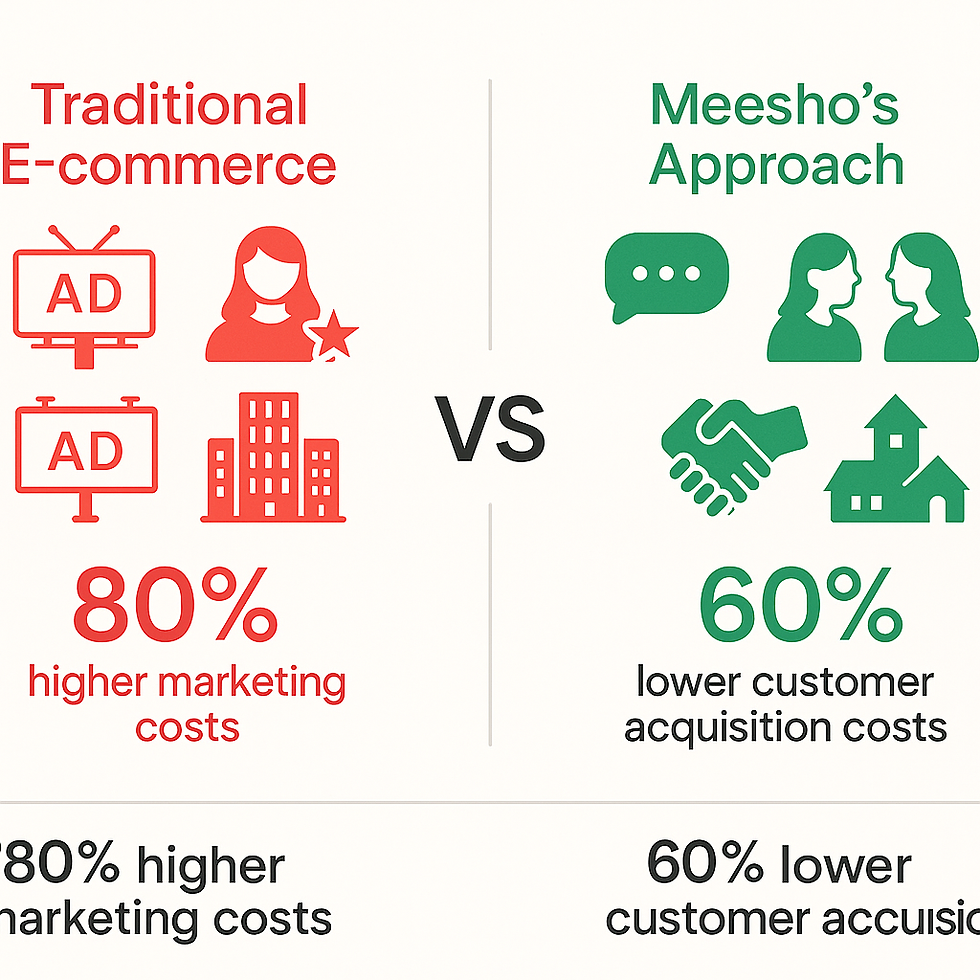
While Amazon and Flipkart spent billions on celebrity endorsements and prime-time advertisements to capture urban India, Meesho achieved ₹6.2 billion GMV through a counterintuitive approach: zero paid advertising to reach Tier 2/3 cities. Founded in 2015 by Vidit Aatrey and Sanjeev Barnwal, Meesho recognized that traditional e-commerce marketing failed in smaller towns where trust deficit dominated convenience preferences. Instead of fighting this reality, they built their entire growth engine around it, creating India's first social proof-driven commerce platform where personal relationships replaced brand campaigns.
The strategic insight proved revolutionary: in trust-deficit markets, people buy from people they know, not platforms they recognize. Meesho's reseller network of 13 million entrepreneurs - predominantly women from Tier 2+ cities - function as human recommendation engines who curate products, build relationships, and provide social validation that no amount of advertising could replicate. This approach eliminated the traditional e-commerce challenge of building brand trust from scratch, instead amplifying existing social trust through WhatsApp groups, Facebook networks, and Instagram connections.
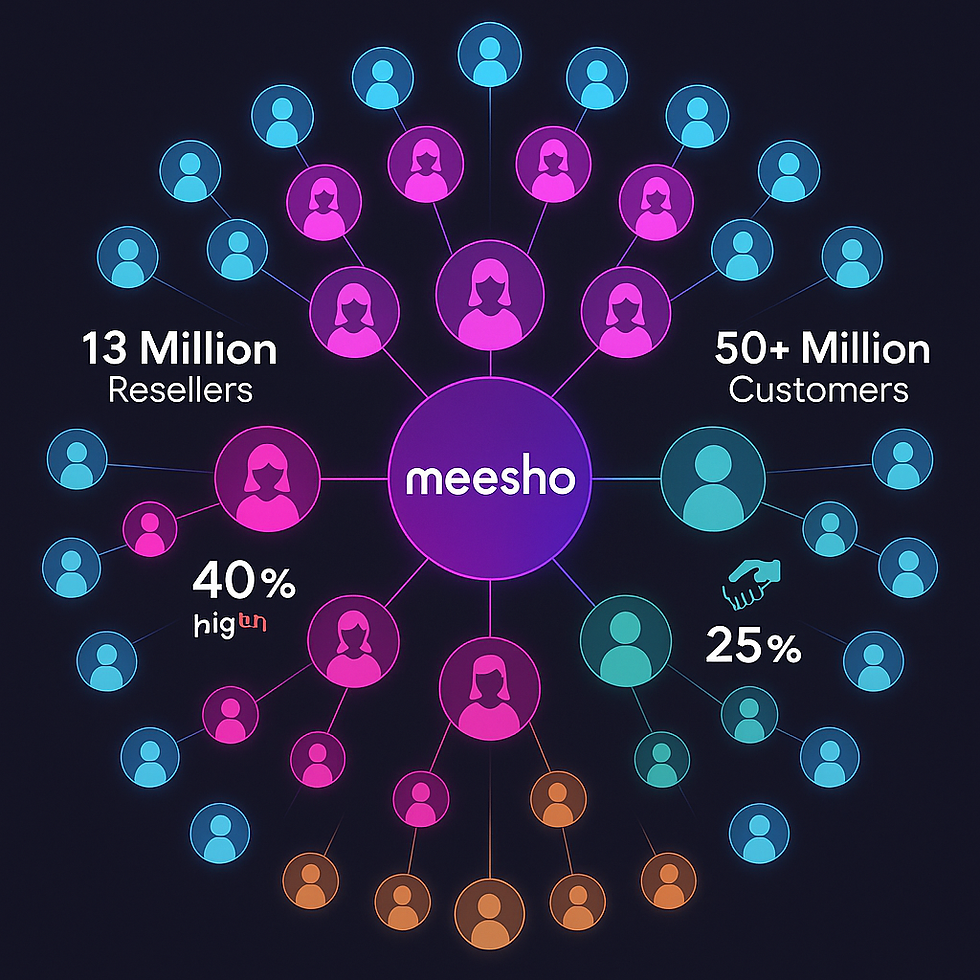
The financial impact validates this approach: Meesho reduced marketing expenses by 80% while maintaining revenue growth, achieving customer acquisition costs 60% lower than traditional e-commerce platforms. More importantly, they captured market share in segments that Amazon and Flipkart struggled to penetrate: 50% of Meesho's sales come from Tier 2+ cities where personal relationships drive purchasing decisions more than brand recognition or platform convenience.
The WhatsApp-First Commerce Architecture: Leveraging India's Social Infrastructure

Reseller Network Marketing as Distribution Strategy
Meesho's breakthrough came from recognizing WhatsApp as India's primary commerce infrastructure rather than just communication platform. With 400+ million WhatsApp users already sharing product recommendations, Meesho created systematic frameworks to monetize existing social behaviors. Their reseller model transforms casual product sharing into structured business operations: individuals browse Meesho's catalog, select products aligned with their network's preferences, add personal markup, and share via WhatsApp with detailed product information and ordering instructions.
This zero-inventory entrepreneurship model eliminates traditional business barriers while creating powerful network effects. Each successful transaction builds the reseller's credibility within their social circle, encouraging repeat purchases and referrals to friends who trust the reseller's judgment. Meesho facilitates this by handling logistics, payments, and customer service, allowing resellers to focus entirely on relationship marketing - their core competitive advantage over anonymous e-commerce platforms.
The economic impact proves significant: resellers typically earn ₹20,000-25,000 monthly through part-time selling, creating sustainable income streams for millions of women who previously had limited earning opportunities. This economic empowerment creates strong platform loyalty and organic advocacy that traditional marketing campaigns cannot replicate.

Regional Language Localization and Cultural Adaptation
Meesho's social commerce success relies heavily on cultural intelligence rather than technological sophistication. Unlike urban-focused platforms that prioritize English interfaces and metropolitan preferences, Meesho optimized for regional language communication and local purchasing patterns. Their resellers naturally conduct business in local languages, understand cultural preferences, and adapt marketing messages to regional festivals, celebrations, and social customs.

This hyperlocal customization creates competitive advantages that scaled platforms struggle to replicate. When a reseller in Kanpur shares ethnic wear recommendations during Karva Chauth via WhatsApp, they're providing culturally relevant product curation that no algorithm can match. The personal relationship ensures appropriate sizing recommendations, quality assurance, and post-purchase support - addressing key concerns that prevent rural customers from trusting anonymous online purchases.
Trust-Building Through Social Proof Amplification
Meesho's platform architecture systematically amplifies social proof signals that drive purchasing decisions in trust-conscious markets. When resellers share product photos, they often include personal testimonials, usage examples, and recommendations from satisfied customers within their network. This creates multi-layered validation where potential buyers see both product features and social endorsement from trusted sources.
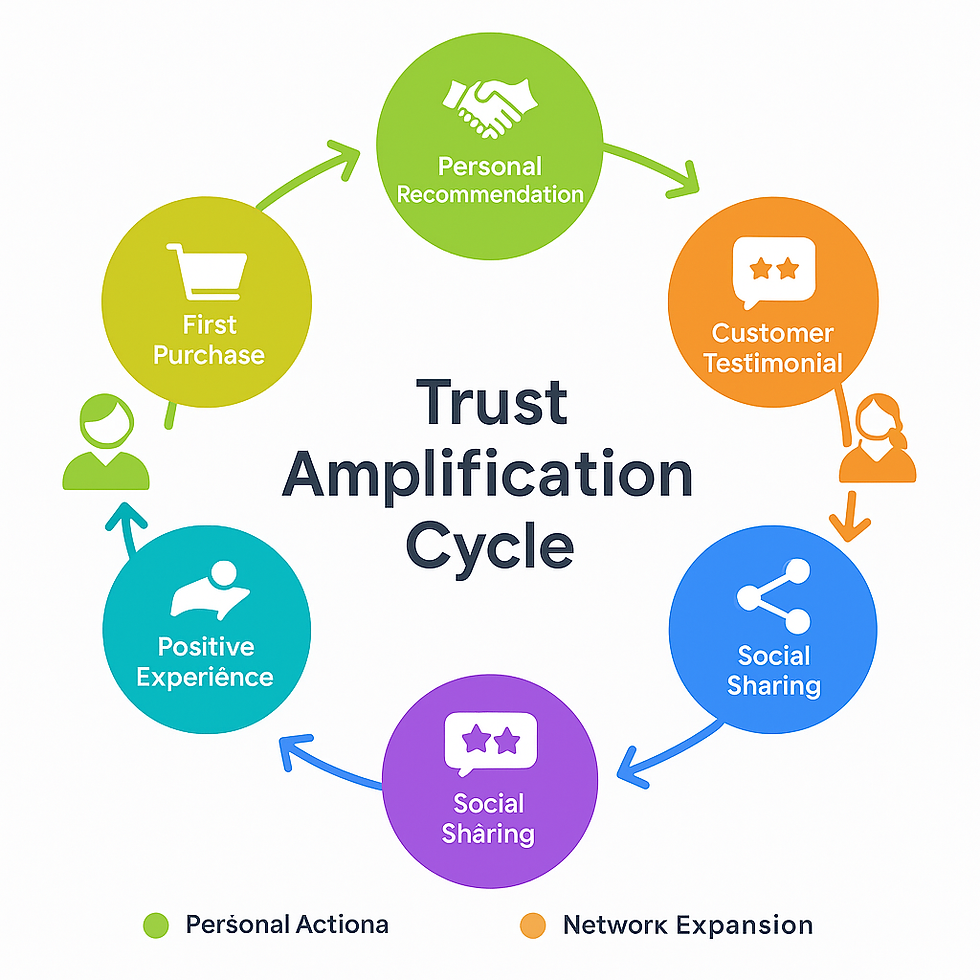
The viral coefficient optimization occurs naturally: satisfied customers become advocates who recommend both products and the reseller to their own networks. Meesho facilitates this through easy sharing mechanisms, quality assurance that protects reseller reputations, and customer service that maintains trust even when issues arise. This creates exponential growth loops where each successful transaction generates multiple future customers without incremental marketing investment.
The Market Psychology: Converting Social Capital into Commercial Success

Behavioral Economics of Trust-Based Commerce
Meesho's success demonstrates how social capital conversion creates more sustainable growth than traditional customer acquisition funnels. In Tier 2+ markets where formal credit systems remain limited and brand trust develops slowly, personal recommendations carry exponential weight compared to advertising messages. Resellers leverage their existing social equity to introduce e-commerce to first-time online buyers who would never trust anonymous platforms.
The risk reduction psychology proves crucial: when someone's sister-in-law recommends a dress through WhatsApp, the purchase feels less risky than ordering from an unknown website. If issues arise, buyers have direct recourse through personal relationships rather than customer service helplines. This social insurance model enables e-commerce adoption among demographics that traditional platforms failed to reach despite massive marketing investments.
Network Effects and Viral Growth Mechanics
Meesho's organic growth relies on intentional virality design where platform success depends on reseller success, creating aligned incentives for network expansion. As resellers build customer bases and increase earnings, they naturally recruit friends and family members who observe their success. This demonstration effect proves more powerful than advertising because potential resellers see real financial results within their social circles.

The compound growth mechanics accelerate over time: successful resellers expand their product range, serve larger customer networks, and generate higher commissions, creating success stories that attract new participants. Meesho supports this through seller education, loan programs for inventory expansion, and recognition systems that provide social status alongside financial rewards.
Strategic Framework: The Replicability of Social Commerce Models
Meesho's approach validates social commerce as a category-defining strategy for markets where trust barriers exceed convenience preferences. The framework requires three foundational elements: existing social networks with commerce potential, cultural contexts that prioritize personal relationships over brand recognition, and technology platforms that facilitate rather than replace human connection.
The strategic implications extend beyond e-commerce to any category where personal recommendation drives adoption - financial services, healthcare, education, and professional services. Companies pursuing social commerce must resist the temptation to automate human elements that create competitive advantages, instead building technology that amplifies rather than replaces relationship-based marketing.
The critical insight from Meesho's journey: in emerging markets, the fastest path to scale often involves empowering individuals to become marketing channels rather than building marketing channels to reach individuals. Their ₹4.9 billion valuation proves that anti-marketing strategies can outperform traditional advertising when aligned with cultural preferences and market psychology.

The ultimate lesson for marketers: sometimes the most effective marketing strategy is enabling customers to market for you. Meesho's 13 million reseller network generates more authentic advocacy than any advertising campaign could create - proving that social commerce represents the future of trust-based marketing in relationship-oriented markets.
Ready to build social commerce strategies that turn customers into distribution networks? Subscribe to our weekly newsletter for frameworks on leveraging social networks for business growth across different markets. Share this analysis with your marketing team—because in today's trust-conscious economy, understanding social commerce isn't just beneficial, it's essential for sustainable expansion beyond urban markets.
.png)

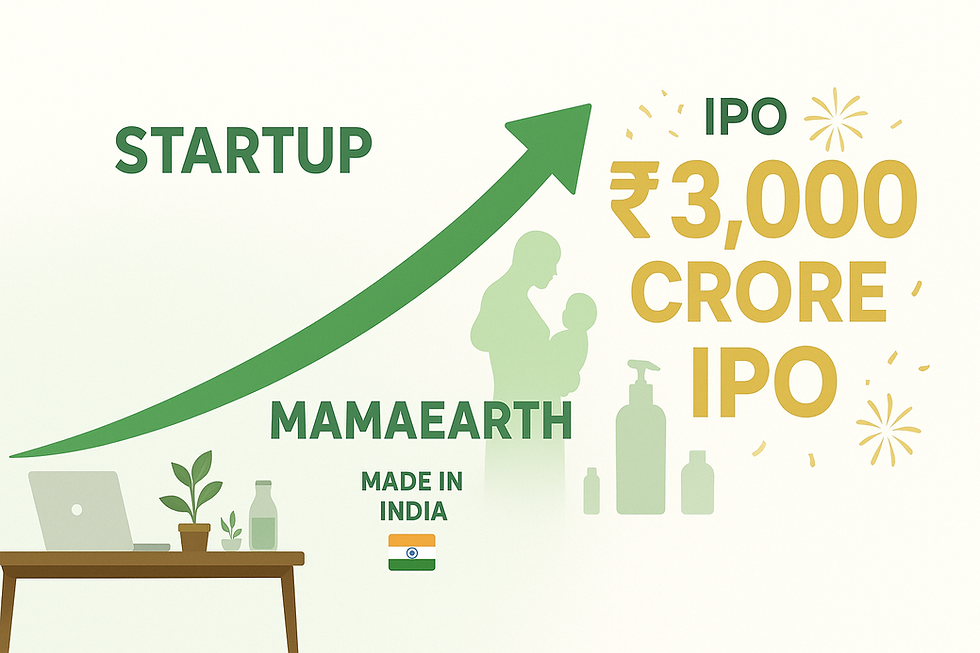
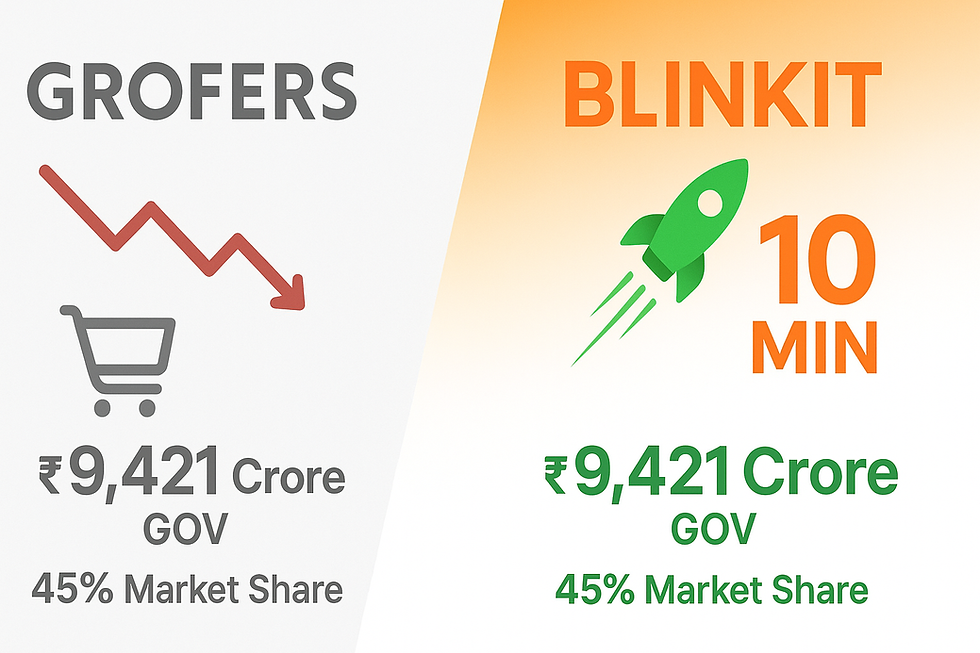
Comments